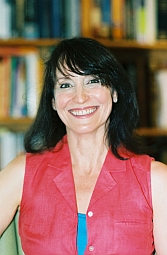

Too often, we focus on actions instead of intentions. We can easily create regrets by doing so. There’s a right question you can use to take care of this.
“By their fruit you will recognize them.” (Matthew 7:16) The word recognize doesn’t mean an ability to identify someone, say, by their face, but to know them—know who a person really is—by what they think, say, and do. And, likewise, others know us by our “fruit,” as well.
Also too often, we believe the “fruit” refers to what’s in their or our bank account, or our tangible assets. Our True fruit is our spiritual nature that is available to guide us through life and put our gifts and talents to good use. Whether or not we turn to our nature or develop or refine it is a choice, and every choice “bears fruit” we call outcomes or results—or regrets.
“A good tree cannot bring forth evil fruit; neither can a corrupt tree bring forth good fruit.” (Matthew 7:18) Let’s look at “fruit” we would call good, and their opposites: Love vs. Indifference; Forgiveness vs. Resentment; Kindness vs. Rudeness; Compassion vs. Apathy; Inner Wisdom vs. Sheeple-Mind; Generosity vs. Self-Centeredness; Lightness of Spirit vs. Negative-Attitude Addiction; Self-Control vs. Carelessness; Collaboration vs. Manipulation; Joy vs. Anger…to name several.
Do your behaviors and life demonstrate the fruit of your inner work? Yes, they do. Are your experiences and results the fruit you choose to produce? Fortunately, we can plant new seeds or saplings that grow and result in better fruit in and from us and our lives.
A friend once said, “I believe the only thing to fear is regret.” That stuck with me; it became a part of my internal GPS. But I didn’t adversely impose on myself by saying I didn’t want to have any regrets (too late for that), but that I want to make choices appropriate for me so I have as few regrets as possible. I’m human; I’m going to make mistakes, even if that isn’t my intention. But I can do what I can to reduce mistakes and regrets. So can you.
Regrets are the results of choices we make that we don’t have head and heart alignment about. How can you get head and heart alignment about choices, especially when you face something you need to do but don’t want to do? Here’s a question to ask: Will I feel better about myself if I do this, or better if I don’t?
Here’s something Old Bill tells A.J. in I Don’t Want to be Your Guru, but I Have Something to Say: “You can make better choices, but what’s underneath the choice? If your consciousness understands how the energy works, that’s far better than just doin’ what’s ‘right.’ I’ve seen folks get stuck in that place. They do somethin’ they think is right—maybe they consider it the ‘Christian’ thing to do. But underneath the action, they’re angry or bitter about doin’ it—maybe even judge those they’re doin’ it for. It’s much better if what you choose to do is somethin’ you find your mind, heart, and spirit are all together on. Doin’ somethin’ you resent isn’t productive long-term. Either shift your attitude about doin’ it—find some benefit to you for doin’ it—or don’t do it, simply because it isn’t appropriate for you. Maybe doin’ it’s gonna fragment some part of you, so-to-speak. So many folks are doin’ things because they don’t want to be a ‘bad’ person and say no, even if it’s what they really feel. Just remember, A.J., you can put a pig in a tuxedo and bring it to a party; but underneath the fancy duds, it’s still a pig. Eventually, do-gooders—folks who do stuff in order to be thought well of rather than because it’s what they really want to do—either explode on the inside with health problems or finally blow up in a fit of temper….”
Every regret can be looked at from your Why perspective; but, don’t do that unless your intention is to expand your conscious awareness. You can move forward by asking the empowering question, What’s my Why? (why you would or why you wouldn’t), about any choice that doesn’t feel clear to you. An unclear choice is usually about a contrast between your spiritual aspect that seeks to expand your consciousness (and therefore how you experience your experiences), and your ego-aspect, which seeks to survive above anything else, including above spiritual development and conscious awareness.
The right answers for you are within you. You just need to look for the right questions to ask, such as the ones offered above, that can lead you to head and heart alignment. It’s a good practice, one you’ll appreciate.
Practice makes progress.
© Joyce Shafer
=================================================
You are welcome to use this article in your newsletter or on your blog/website as long as you use my complete bio with it.
Joyce Shafer is a Life Empowerment Coach dedicated to helping people feel, be, and live their true inner power. She’s author of “I Don’t Want to be Your Guru, But I Have Something to Say” and other books/ebooks, and publishes a free weekly online newsletter that offers empowering articles and free downloads. See all that’s offered by Joyce and on her site at http://stateofappreciation.weebly.com

Leave a Reply